


REPORT ON: JALAPHET BRI SUTNGA VILLAGE
DISTICT: EAST JAINTIA HILLS
20th MARCH 2023
COMMUNITY LED LANDSCAPE MANAGEMENT PROJECT

MEGHALAYA BASIN MANAGEMENT AGENCY
Community Led Landscape Management Project (CLLMP)
The Government of Meghalaya with financial help from the World Bank is implementing the Meghalaya Community Led Landscape Management Project (MCLLMP). The project will cover the manner throughout the state. The Meghalaya Basin Management Agency (MBMA) will facilitate community-led planning by providing support, technical inputs and funding.
The project is intended to strengthen Community Led Natural Resources Management in selected landscapes within the 7 districts of the state. This would be achieved through a variety of planning, capacity building, and on-the-ground interventions to promote the conservation, sustainable use of natural resources, social inclusion and community mobilisation; building traditional knowledge and learning, mapping of natural resources management; strengthening the community institutions and creating linkage with financial institutions and community organisations.
The project interventions will include preparation of community led natural resource management plans. The CLLMP has the following three components:
1. Strengthening Knowledge and Capacity of Communities for Natural Resources Management
2. Community-Led Landscape Planning and Implementation
3. Project Management and Governance

The project objective is “to manage and conserve the natural resources especially forests, soil and water sources, in a manner that supports the financial and physical well-being of communities in the State”
The CLLM-Programme focuses on increasing the capacities of communities and traditional institutions (TI) by adopting a landscape approach to manage their natural resources such as soil, springs and other water sources, forests and bio-diversity, etc.
The project will be planned and implemented in about 400 villages across the state.
CLLMP has a strong focus on institution-building at the village-level, by ensuring systematic capacity-building on technical and social skill-sets.
The project will also extend such training to communities beyond the targeted villages and support efforts made by them to access funding from various rural and natural resources initiatives and schemes.
The programme will also invest in improving the process and outcome delivery, by developing and adhering to effective systems and procedures, supported by the appropriate technology.
Benefits for community (Skills and Capacity relating to technical and managerial areas like NRM and Conflict resolution
Benefits to traditional institutions (village councils, traditional leaders, community-based organizations, SHGs etc) through Knowledge sharing, promotion of innovative approach, access to technology, technical managerial and financial support.
It is estimated that the project will impact around 1 lakh partners (of which 50% are women) who depend on land, forest, agro forestry.
Through the project, 55000 Ha of targeted area will be ensured with availability of water, biological resources and soil productivity, which will in turn benefit around 400 villages and the outcomes delivery can be summarized as follows.
The Project will be executed by the MBMA in collaboration with other partners particularly, SIRD (for training and capacity building), Department of Soil and Water Conservation, Water Resource Department, Forest Department, specifically with respect to technical inputs, safeguards management and Community NRM plan preparation
2018-2023 (5 years)
Table of contents
Introduction ……………………………………………………………………...........................4
Village Profile …………………………………………..……………………….............5-8
2. Activities
2.1. Ground Truthing ……………………………………..………………….................. 9
2.2. Sensitization ……………………………………..…………………........................ 10
2.3. Signing of Documents ……………………………………..…………………...........10
2.4. Formation of VNRMC ……………………………………..…………………........... 11
2.5. Opening of Bank Account ……………………………………..………………….....12
2.6. PRA/CNRMP ……………………………………..…………………..........................13-14
4. Training ……………………………………..…………………...............................................15-16
5. Implementation ……………………………………..…………………..................................17-28
6. Fund Status………………………………..…………………..........................................................29
INTRODUCTION
Jalaphet bri Sutnga village falls under Saipung C&RD Block of East Jaintia Hills District in the state of Meghalaya. The village is at a distance of 16 Kms from Khliehriat, the district headquarters of East Jaintia hills District and is at a distance of 102 Kms from the state capital, Shillong. It falls under the Elaka Sutnga with a total geographical area of 877.98 ha and a total population of 1170.

Boundary map of Jalaphet bri Sutnga village
VILLAGE HISTORY
Jalaphet bri-sutnga is one of the oldest village under the saipung block. The members and when was it formed was difficult to trace because the village was founded a long decades ago.
This village is called ‘’JALAPHET’’ because in the early days the people who came to reside in this village were escaping from the famine and also they were engaged in farming in this area, for this reason the people from shnong tuber has come and resided in this particular area.
The village was known as “LAPHET” for a brief moment in time, as the story goes people from the shnong tuber were searching and asking “where were the people missing?” some answered “LAPHET” which means they ran away. This is how the village derived their name. As time goes by, the leaders of the village with their knowledge and wisdom came up with a new name for the village that is “JALAPHET.”
After that, in the year 1949 a government L.P. school was constructed in jalaphet, and in the year 1979 the village also formed a U.P. school which was named Jalaphet U.P. school. As years goes by, the population start rising in the village, so the village was divided into two parts, that is ‘’JALAPHET BRI-SUTNGA’’ & ‘’JALAPHET BRI-SUMER’’. Now, the population of the JALAPHET BRI-SUTNGA is around seven thousand individuals.
VILLAGE PROFILE
The LULC map has been categories into 9 categories which are
under the following
| Land use/ Landcover | Area in Hectare |
|---|---|
| Settlements/ Built Ups | 67.62 |
| Water Bodies | 21.99 |
| Agricultural Land | 24.63 |
| Barren Land | 139.46 |
| Grassland | 108.41 |
| Culturable Wasteland | 1129.98 |
| Open Forest | 284.32 |
| Dense Forest | 28.61 |
| Plantation | 21.83 |
LULC map of Jalaphet bri Sutnga village


In regards to social profile and its population, Jalaphet bri Sutnga village consist of 3400 total population, out of which 1600 are Males and 1800 are females village are 5365 total population, out of which 2587 are Males and 2778 are females.
| Age Group | Male | Female | Total |
|---|---|---|---|
| 0-4 | 84 | 97 | 181 |
| 5-14 | 490 | 532 | 1022 |
| 15-30 | 669 | 686 | 1355 |
| 30-60 | 584 | 597 | 1181 |
| Above 60 | 87 | 95 | 182 |

Jalaphet bri Sutnga village, consist more farmers who cultivates paddy cultivation and other vegetations to meet their needs. There are about 530HH are farmer, 100 HH are labours, 100 HH are Business .
 The
main sources of energy/Fuel for these villagers are:
The
main sources of energy/Fuel for these villagers are:
Overall, the choice of energy sources in a particular location depends on the variety of factors, including availability, cost, and environmental considerations. It is important to balance the need for affordable and accessible energy with the need to protect the environment and public health.
ACTIVITIES
Ground Truthing
On 15th October 2018 the District Project Management Unit (DPMU) team met with the Jalaphet bri Sutnga village leaders to interact & gather information regarding the state of the village. This village was suggested by the BDO of Saipung Block.


Case Findings:
There are 170 HHs
The springs which the village community mostly depend on are located mostly in the outskirts of the village
The stream which flows through the village has turned acidic due to coal mining seepage
There are two community forest
As coal mining activities has been banned in the village, the people have started looking for other means such as agriculture, business and govt. services to earn a livelihood
Training on solid waste management is needed
Sensitization Programme
The sensitization programme at Jalaphet Sutnga village took place on the 14th December 2018 at the Church ground. A total of 128 participants attended the programme. Shri W. Shylla, ADPM, gave a brief introduction about Community Led Landscape Management Project. He spoke about the issues and problems faced by the farmers and villages in regards to water scarcity and water quality in Meghalaya in spite it being the state which receives the highest amount of rainfall in a year. He also expressed the concern of how other natural resources such as air, soil, etc. have been affected at a very large scale. Therefore, he requested and encouraged the local community to work towards sustaining the environment in order for the survival of future generations. He explained the different components of the Project which will help the community in understanding and managing the different landscapes in the village.
 Shri.
W. Shylla also highlighted the approach and steps which the village
have to follow once they accept the project. The first step is
signing of the Citizen’s Green Charter followed by the formation of
Village Natural Resource Management Committee (VNRMC) which will be
constituted by the Village Dorbar. After that the EOI and VGA will
be signed simultaneously probably during the PRA and CNRMP
preparation
Shri.
W. Shylla also highlighted the approach and steps which the village
have to follow once they accept the project. The first step is
signing of the Citizen’s Green Charter followed by the formation of
Village Natural Resource Management Committee (VNRMC) which will be
constituted by the Village Dorbar. After that the EOI and VGA will
be signed simultaneously probably during the PRA and CNRMP
preparation
The Program was followed by an interactive session to answer the doubts and questions of the villagers.
 Signing
of Documents
Signing
of Documents
After the programme, the village headman and secretary along with two witnesses signed the EOI, VGA and Citizens Green Charter. They planned to arrange a meeting between the village leaders and the community before electing the executive members of the Village Natural Resource Management Committee (VNRMC).
Formation of the VNRMC
The Formation of the Village Natural Resource Management Committee was done in a public meeting in the presence of the entire village after the sensitization program was conducted. The community itself chose the President, the Secretary and the other executive members of the Committee.
Listed below are the members of the VNRMC:
| S No | Name in Full | Designation | Gender M/F | Age (Yrs) | Education | Occupation | Community | Religion and Denomin ation |
Contact No and email address |
|---|---|---|---|---|---|---|---|---|---|
| 1 | Marpil Dkhar | Chairman | M | Pnar | Catholic | ||||
| 2 | Linda Nongtdu | Secretary | F | Pnar | Catholic | ||||
| 3 | Pratas Supuh | Member | M | 36 | X | Business | Pnar | Catholic | 8731824844 |
| 4 | Paskal Suja | Member | M | Pnar | Catholic | ||||
| 5 | Probinus Pdang | Member | M | Pnar | Catholic | ||||
| 6 | Meris Pdang | Member | F | Pnar | Catholic | ||||
| 7 | Tasiana Kympat | Member | F | Pnar | Catholic | ||||
| 8 | Elisabet Pdang | Member | F | Pnar | Catholic | ||||
| 9 | Pretty Bamon | Member | F | Pnar | Catholic |
Opening of Bank Account
The opening of the bank account was initiated after the village signed the EOI (Expression of Interest), the VGA (Village Grant Agreement) and the Green Charter.

Shri. P. K. Marbaniang, DPD and Smt. Ivan Mary Marboh, Accountant of CLLMP East Jaintia Hills District trained the Purchasing and Procurement Committee of Saipung Block including members from Jarain Village on matters relating to Accounts and Book Keeping on the 7th June 2019.


PRA/CNRMP
The PRA/CNRMP exercise aims to incorporate the knowledge and opinions of the community in the planning and management of development projects and programmes. PRA exercise at Jalaphet Bri Sutnga Village took place on 9th February 2019. A team from SPMU were also present to help the DPMU team.
Shri. W. Shylla, ADPM gave the introduction and spoke about the different activities that the participants had to take part during the programme. Shri J. Nongpiur, Manager Environment Management SPMU, spoke in brief about the CNRM plan and the different types of intervention related to natural resource management. A group of participants interacted and helped him collect data based on the environmental template. With the help of this group, he was also able to identify the different sites of intervention. Shri E. Syih, Asst. Manager Social Management, gathered the remaining group of participants to help him gather baseline data based on the social template. The program was facilitated by the DPMU and SPMU team.

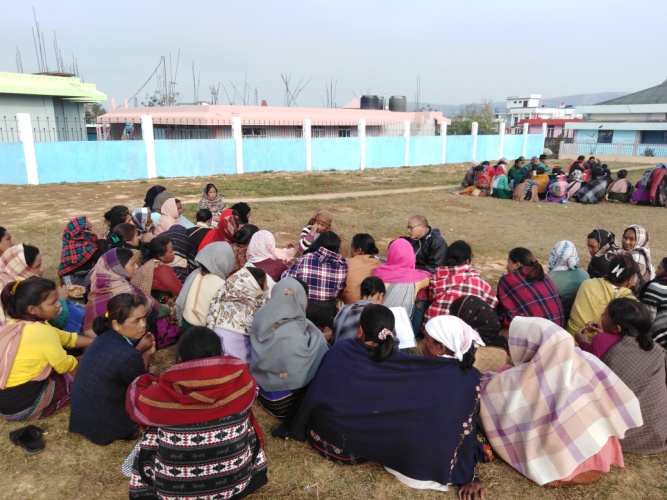
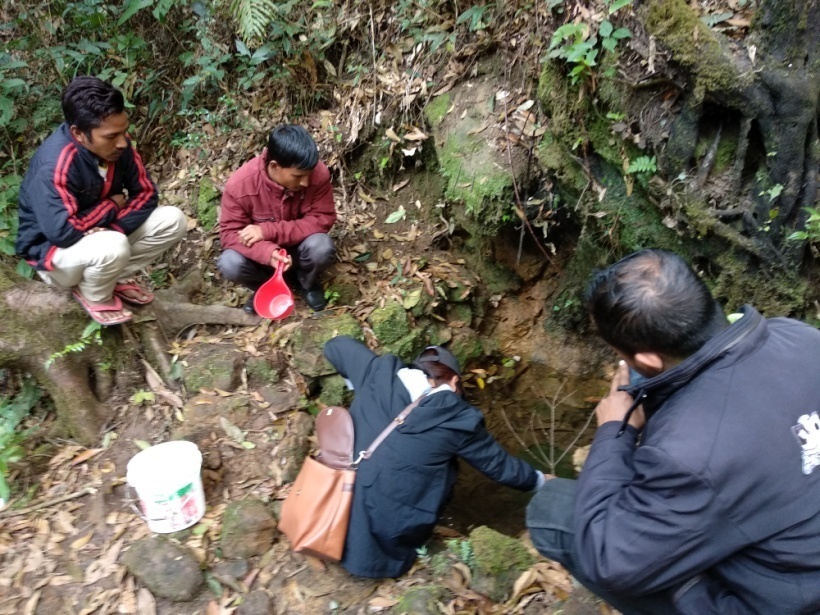
Findings based on the information gathered from the participants during the PRA/CNRMP exercise
Main agricultural produce is Paddy
170 HHs depend on firewood & LPG as a source of fuel while 100 HHs also depend on charcoal
Drinking water is limited over a period of 3 to 4 months during the winter season
Two types of forest ownership: Community & Private
The springs which are present in the village which need rejuvenation
Only one stream flows through the village
Training on Land productivity & solid waste management is necessary for the village community
No disputes/constrains encountered within the village community or with any neighbouring villages
Women are involved in decision making at various platforms
Priority Interventions required based on the PRA Exercise:
Rejuvenation of springs through activities such as afforestation and contour trenches
One water body which turned acidic due to coal mine seepage have been selected for treatment using the open lime channel
A dug out pond to collect rain water
Afforestation, bio-fencing and fire line control in the community forest
Community nursery for endemic and fruit trees
Submission of the Community Natural Resource Management Plan for 1st Phase
| Proposed intervention | Name of site | Land Ownership | No of HH expected to benefit |
Priority |
|---|---|---|---|---|
|
Skong |
|
|
|
|
Shymit |
|
170 | Medium |
|
Shyrmit |
|
170 | Medium |
|
Skong |
|
170 | Medium |
|
Skong |
|
170 | Medium |
TRAINING
Training on Springshed Rejuvenation and Inventorisation
This training was conducted in Jarain (Sutnga) village on 4th December 2019 for the members of the VNRMC and VCF’s which fall under Saipung C&RD Block, EJHD. Smt. W. Pyrbot, Manager Water Resources SPMU along with the DPMU team facilitated the training. The training aims to enhance the participants on management and treatment of springs.

Shri. R. Jana Nongbet, FE demonstrating how to measure water discharge
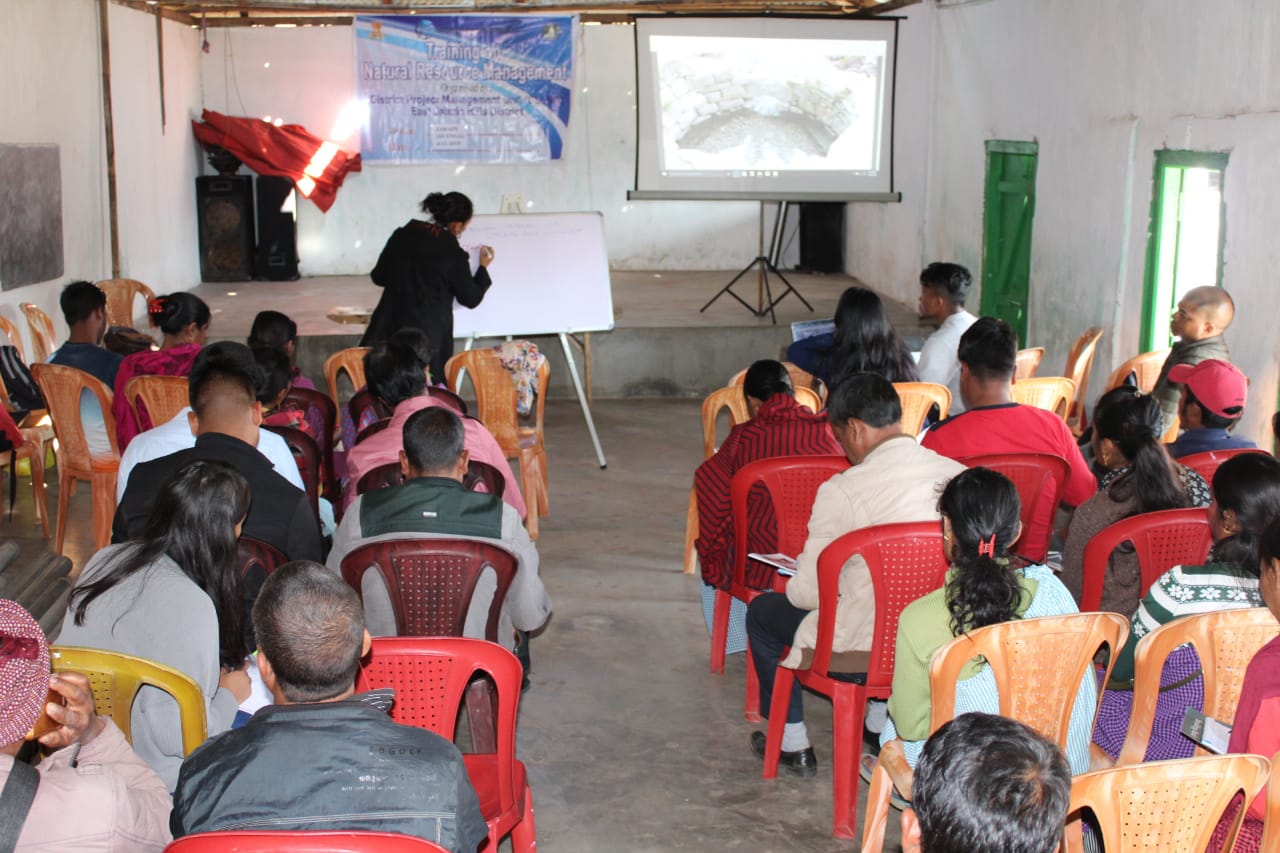
Smt. W. Pyrbot, Manager Water Resources conducting a theory session on springshed management in Jarain (Sutnga) community hall
Training on Social Safeguard
The training on Social Safeguard for the members of VNRMC and VCF’s which fall under Saipung C&RD Block, EJHD was conducted in Latyrke community hall on 29th November 2019. The participants were sensitized on social and environmental safeguard policies related to CLLMP. This is necessary in order to prevent and mitigate undue harm to the village communities once the project is implemented. Smt. P. Thangkhiew (Manager SM) along with the DPMU team facilitated the program.
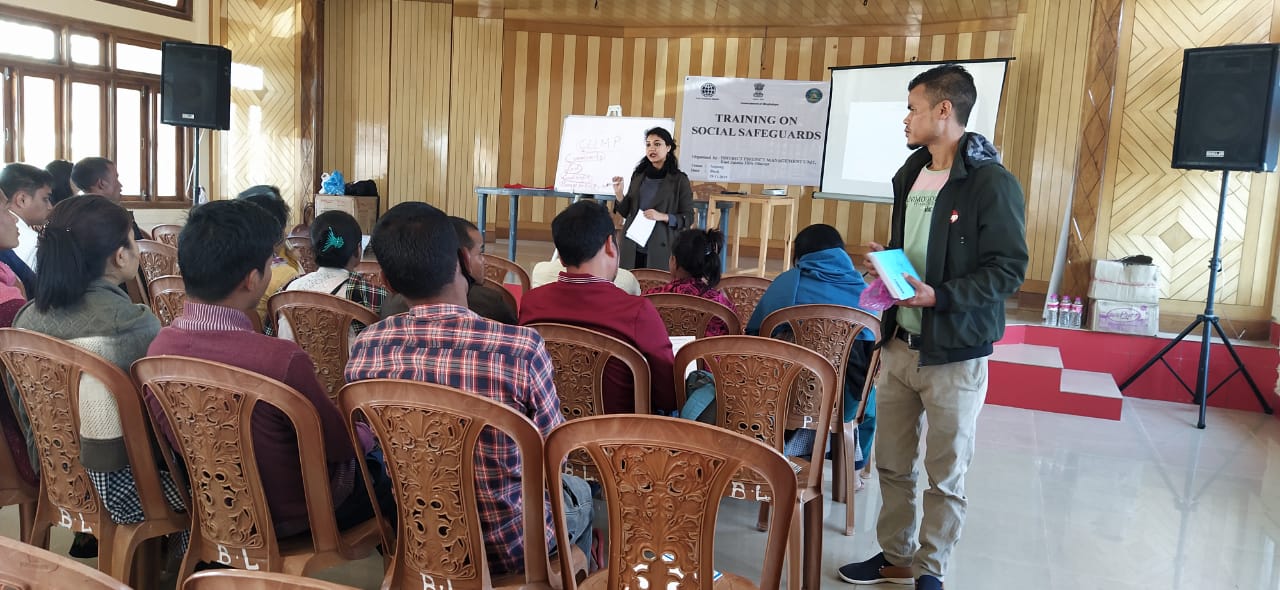
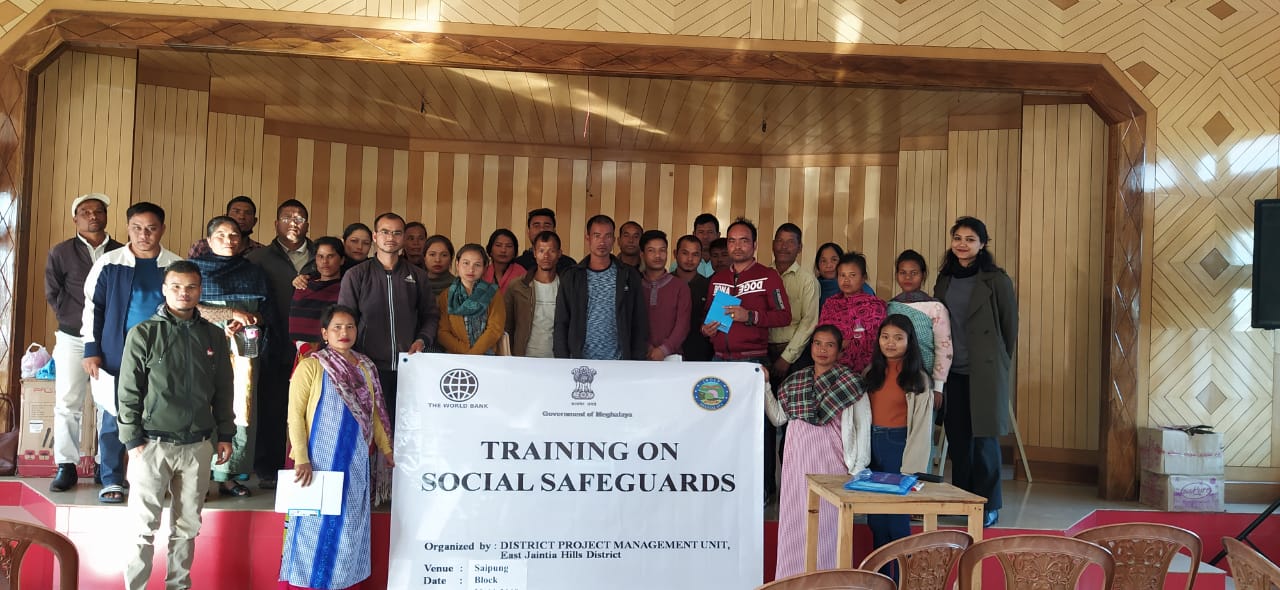
Pictures from the training
IMPLEMENTATION
1.
| Type of intervention | Name of Site | GPS Coordinates | Amount Sanctioned | Work Status | |
|---|---|---|---|---|---|
Community Nursery With Bio-fencing |
Lum Jingtep, Skong |
25.347556˚N | 92.454255˚E | ₹ 179,560.00 | Completed |
| Name of the species | Number of saplings |
|---|---|
| Diengsoh | 190 |
| Soh Bliat | 1010 |
| Dieng Sning | 520 |
| Dieng Shyrngan | 500 |
| Dieng Rtiang | 190 |
| Lemon Grass | 1000 |
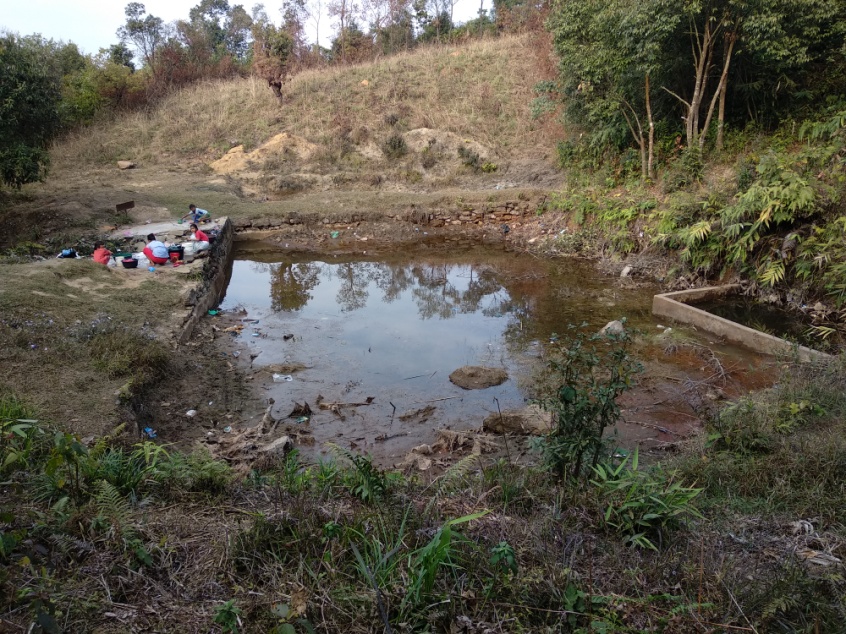
Before
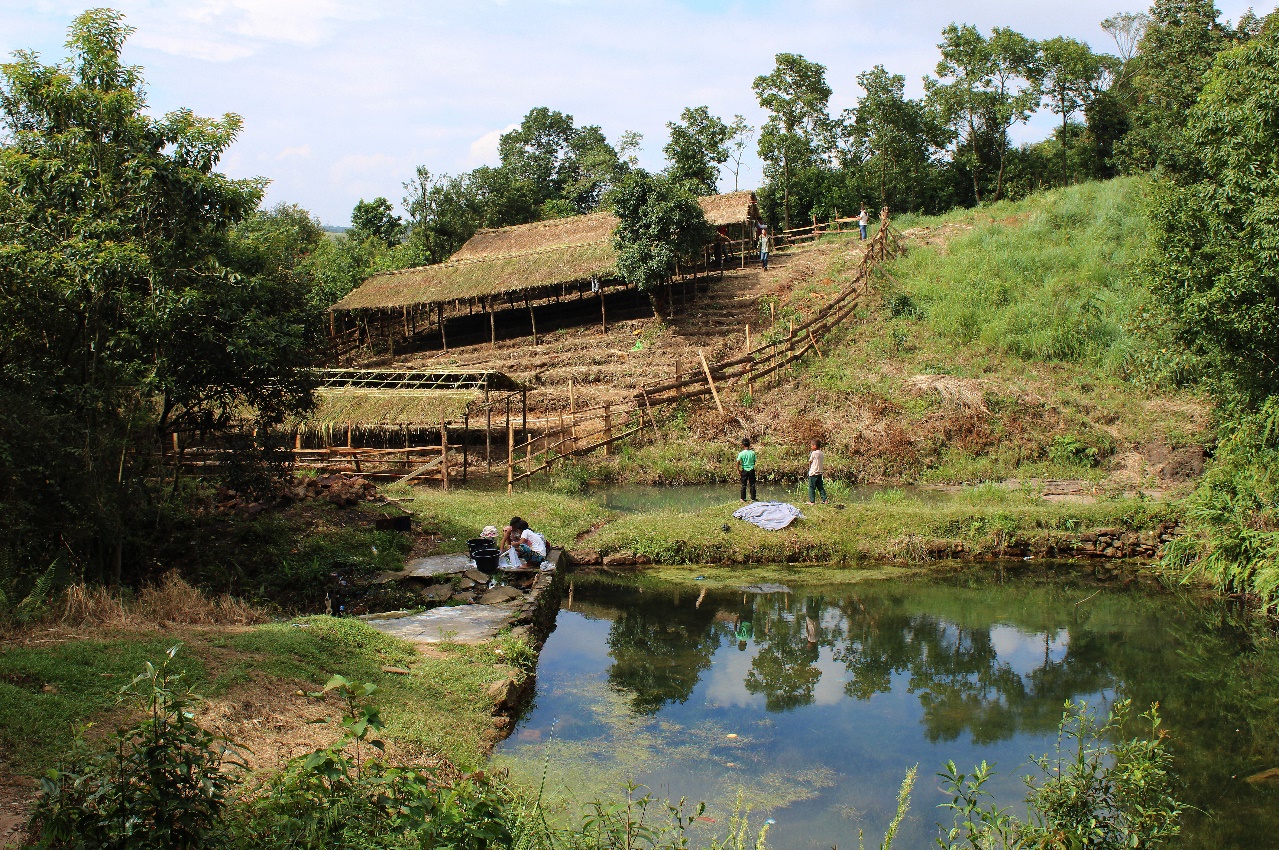
After
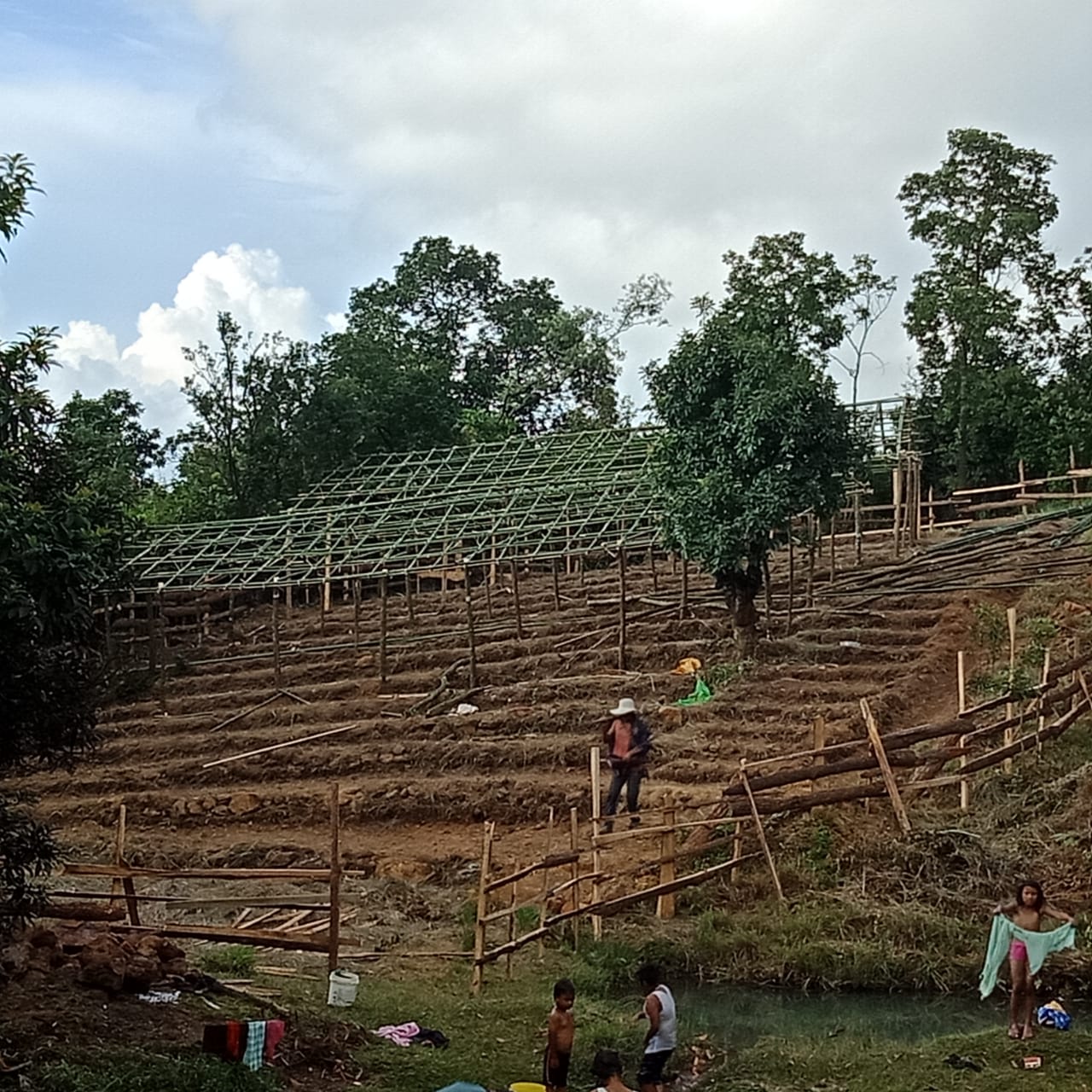
The work in progress
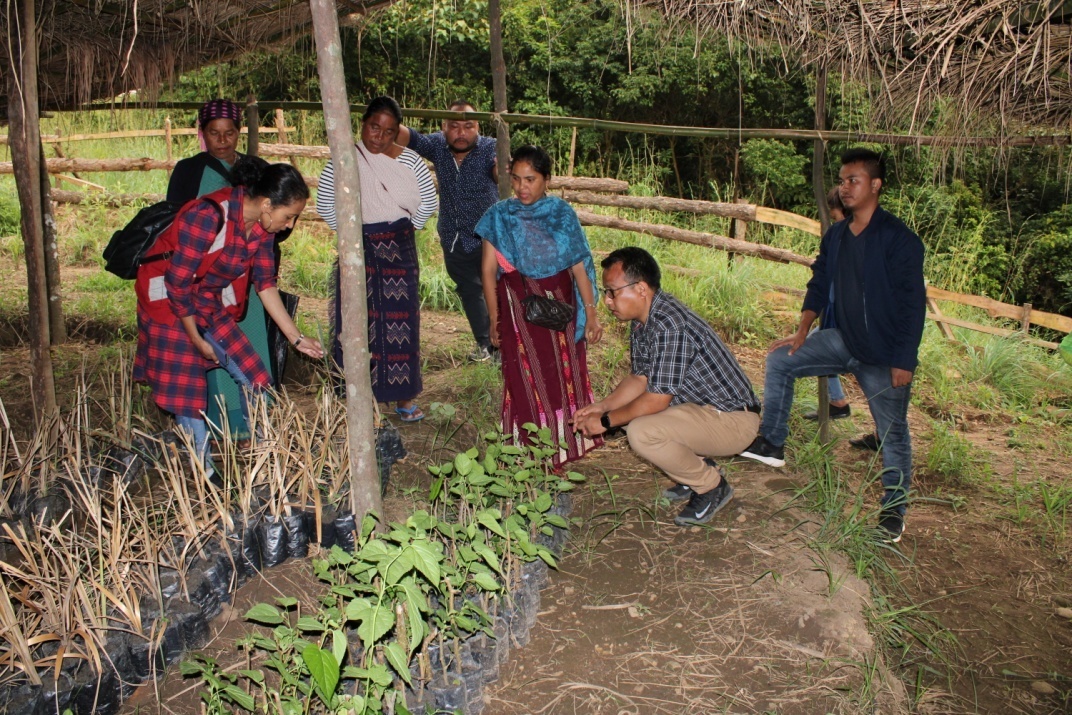
Shri. J. Kharkongor, DPD NRM visited the community nursery on 26th September 2019
2.
| Type of intervention | Name of Site | GPS Coordinates | Amount Sanctioned | Work Status | |
|---|---|---|---|---|---|
| Contour Trenches | Skong | 25.347225° N | 92.454579° E | ₹ 74,280.00 | Completed |
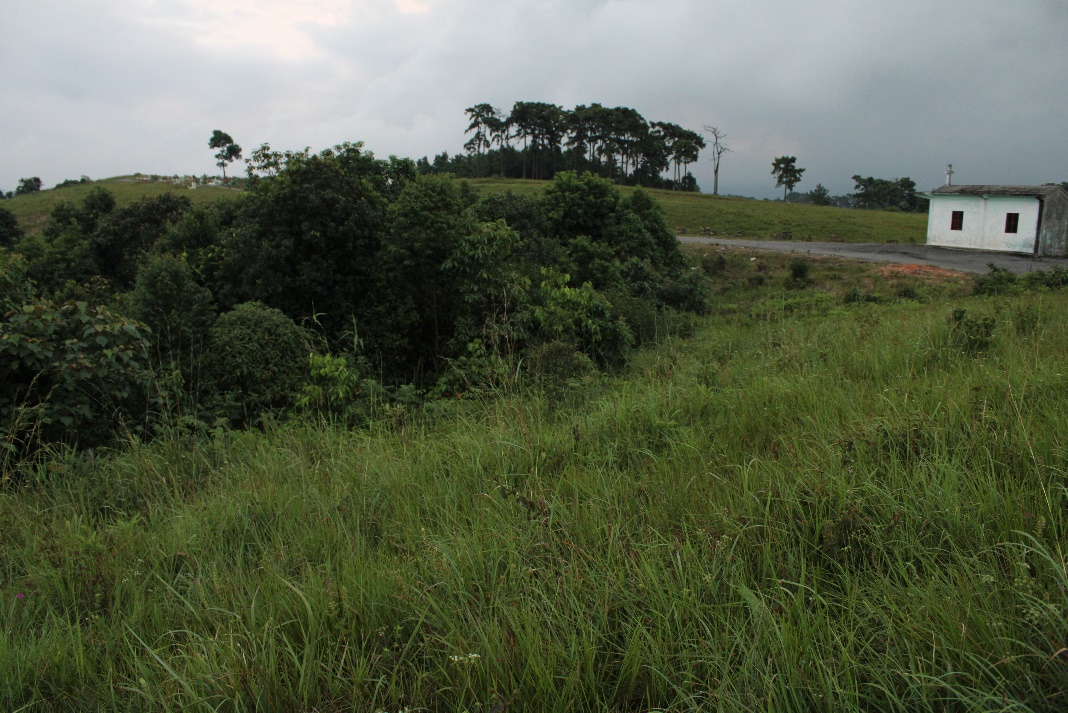
Before
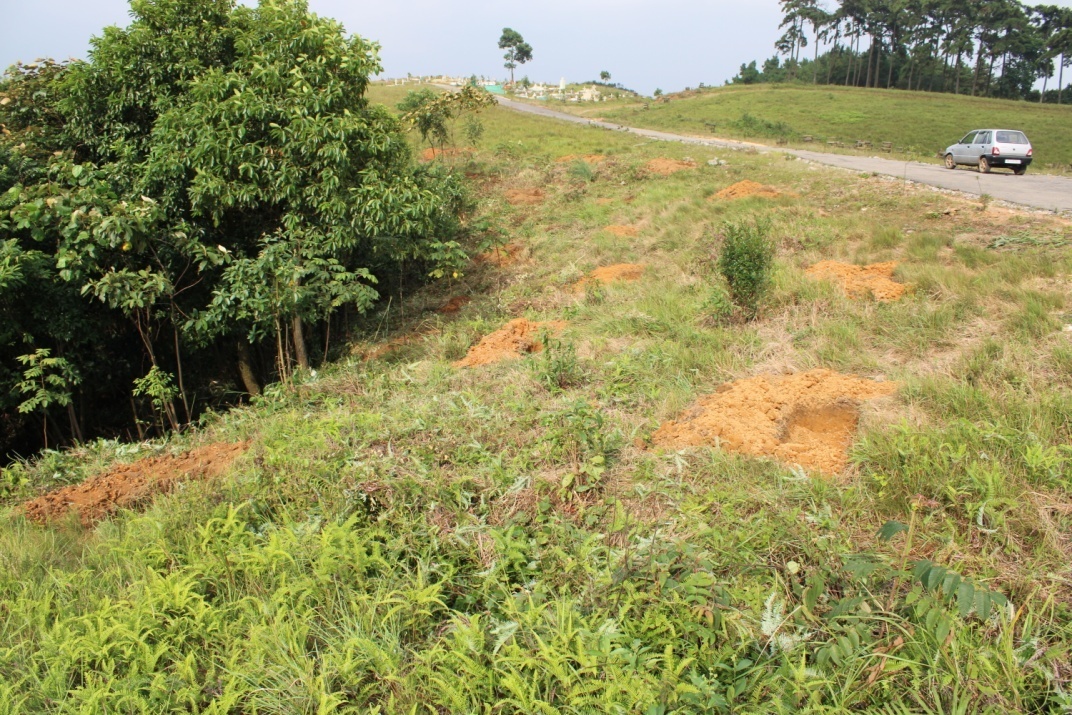
After
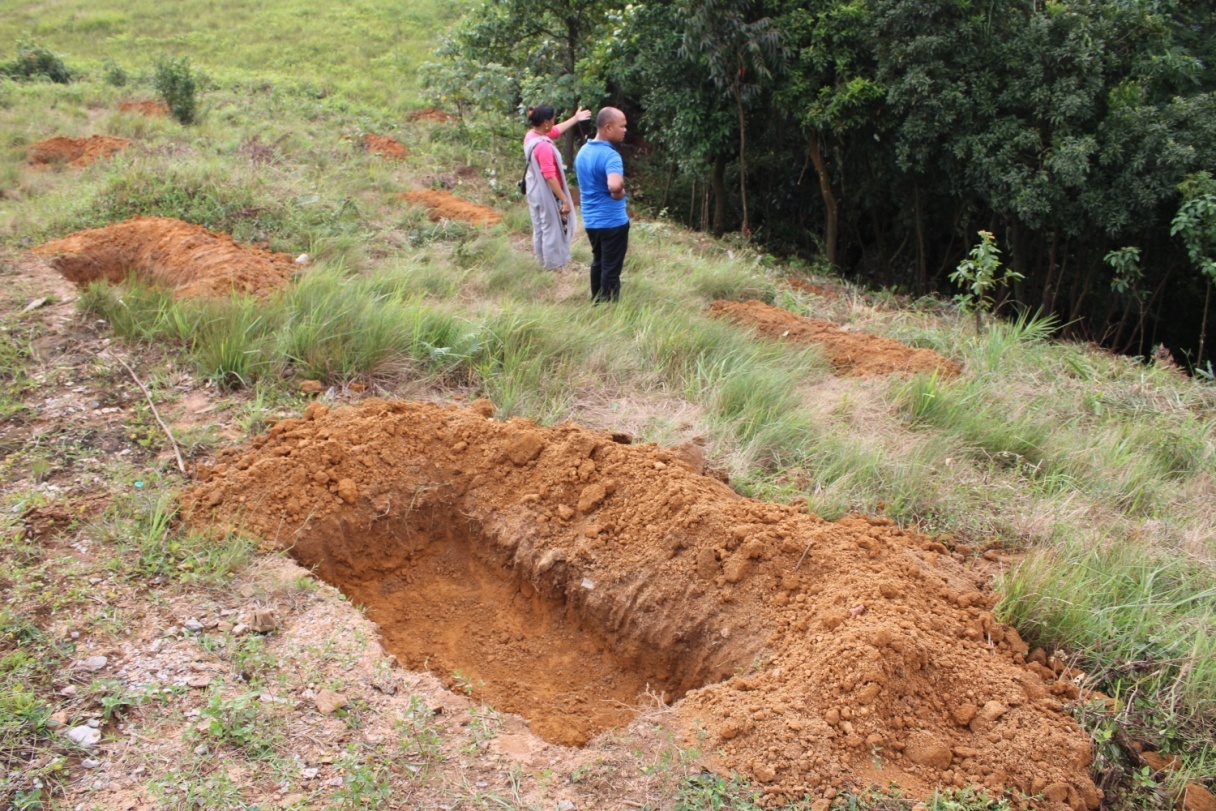
The ADPM and AM KM monitored the work in progress
| Type of intervention | Name of Site | GPS Coordinates | Amount Sanctioned | Work Status | |
|---|---|---|---|---|---|
| Spring Chamber | Dien Rngam | 25.387564° N | 92.458717° E | ₹ 79,300 | Completed |
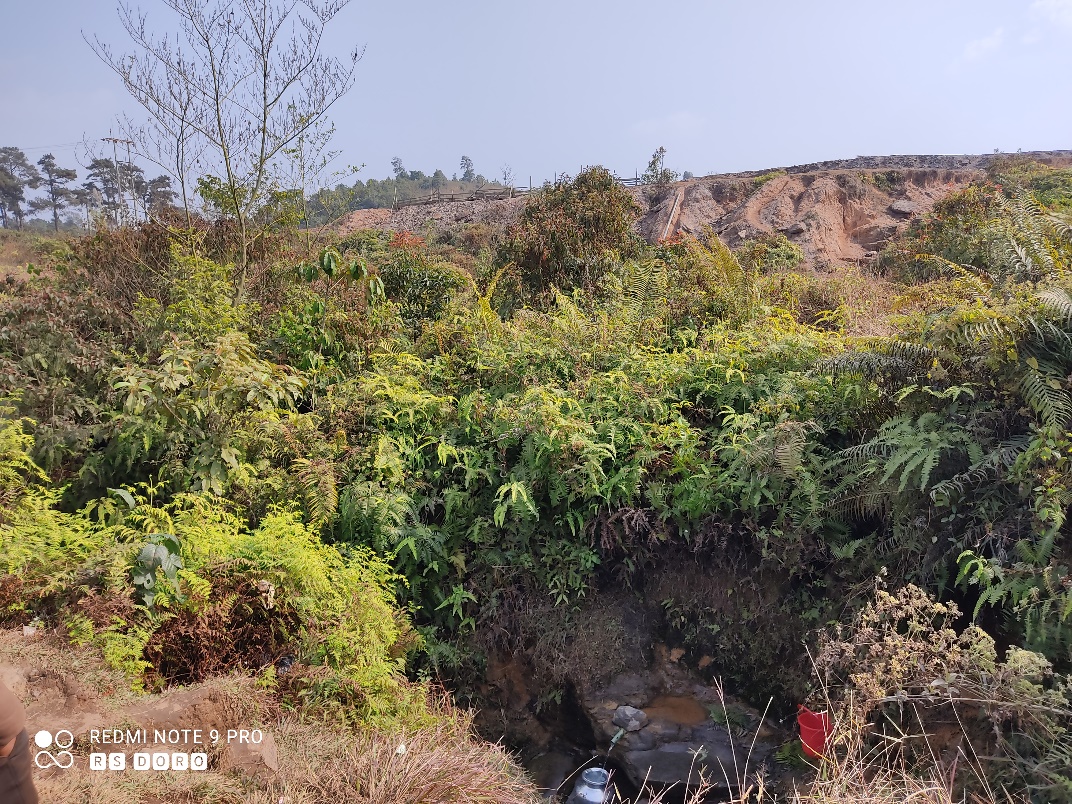
Before
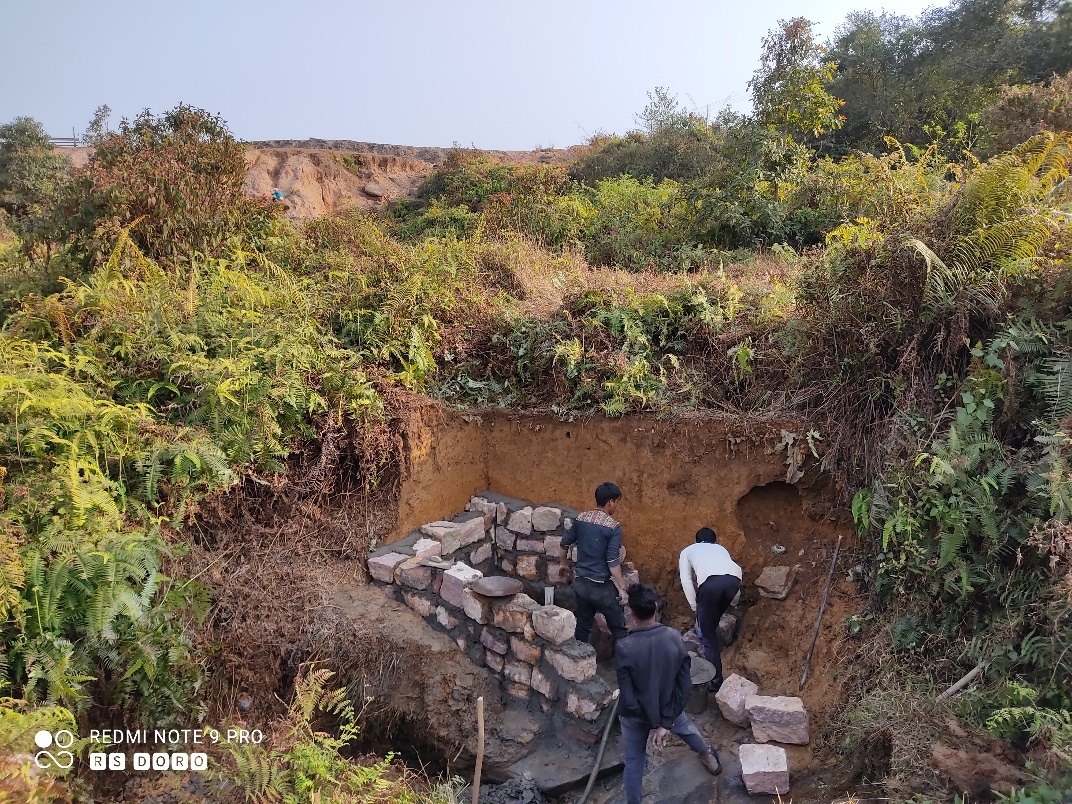
During the process
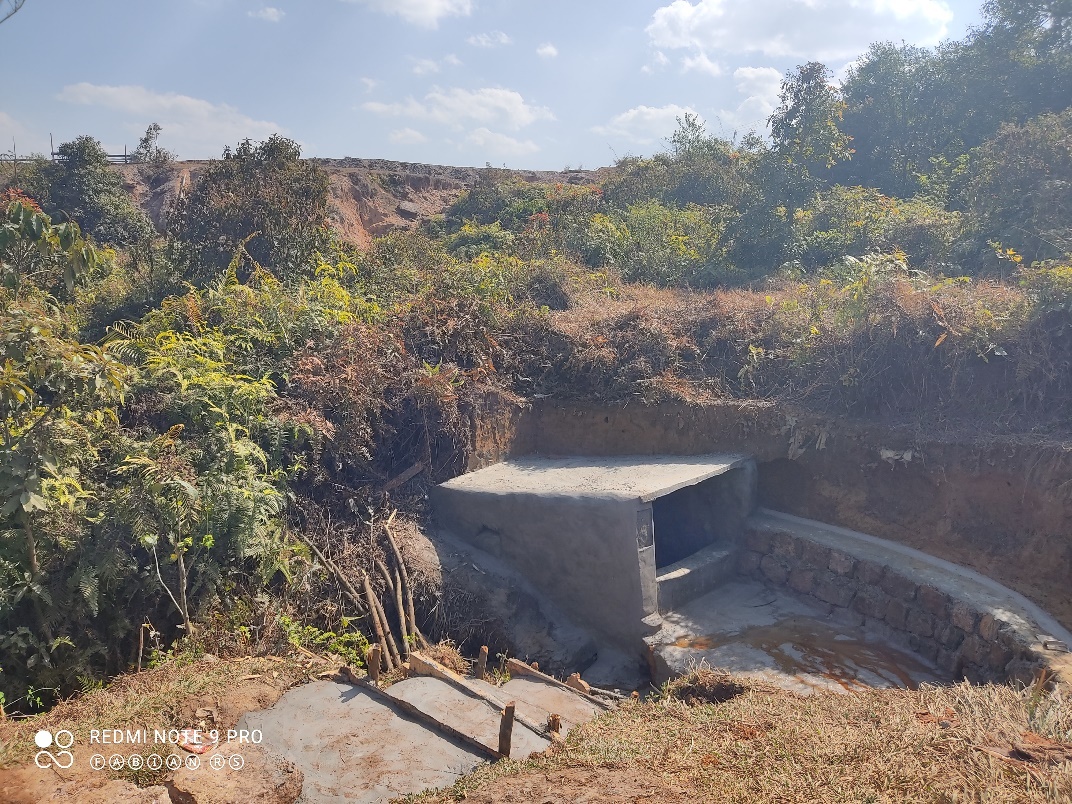
After
| Type of intervention | Name of Site | GPS Coordinates | Amount Sanctioned | Work Status | |
|---|---|---|---|---|---|
| Gully plug | 25.3° N | 92.4° E | ₹ | Completed | |
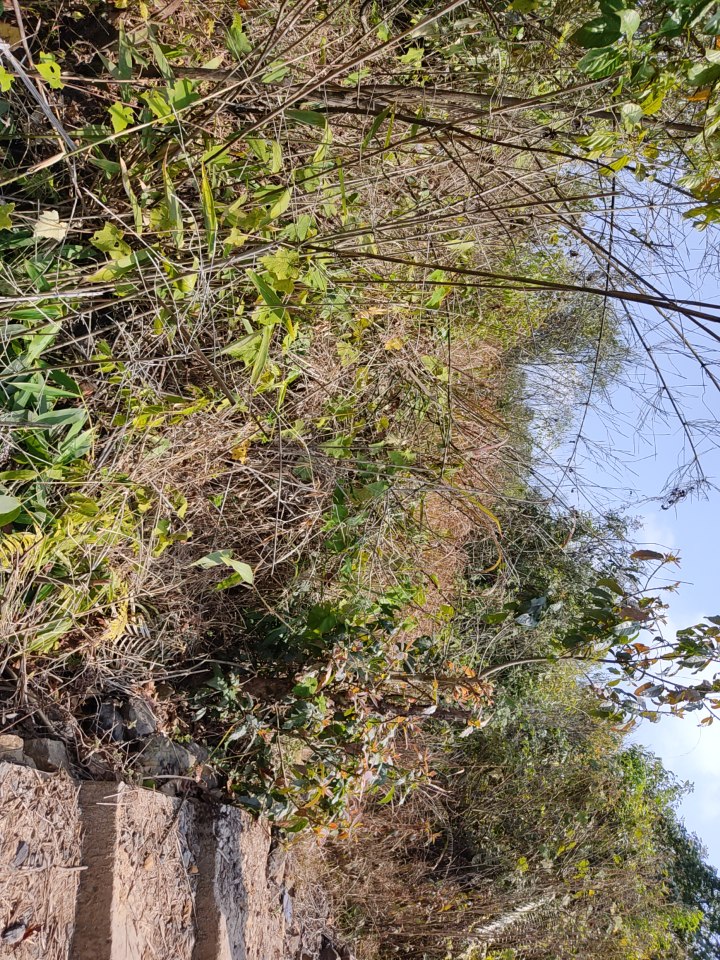
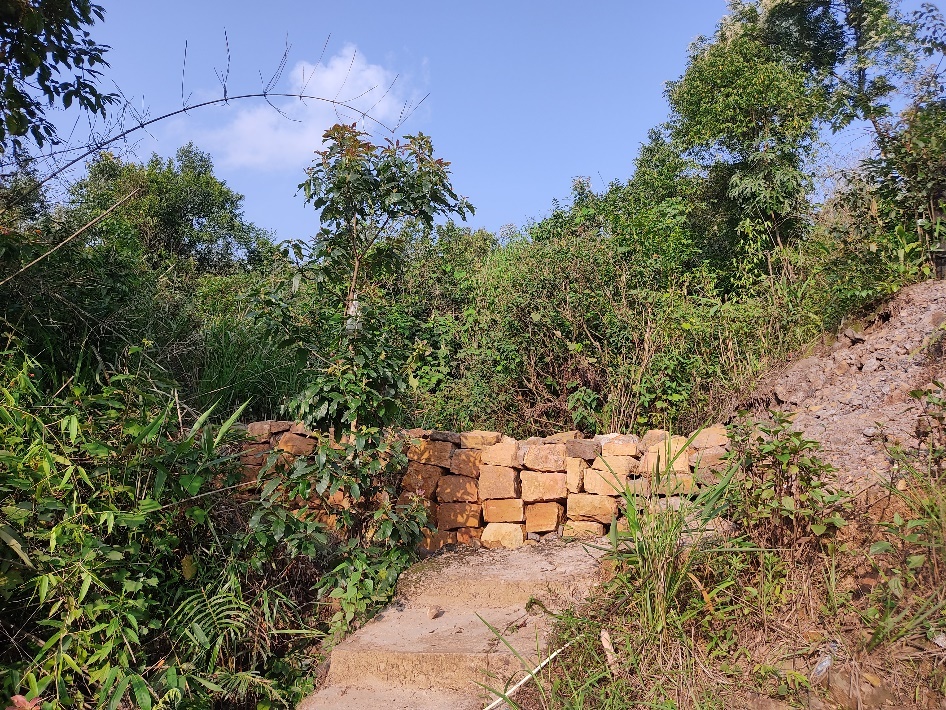
| Type of intervention | Name of Site | GPS Coordinates | Amount Sanctioned | Work Status | |
|---|---|---|---|---|---|
| Swale | LIAR-SARBANG | 25.° N | 92. ° E | ₹ 40800 | Completed |
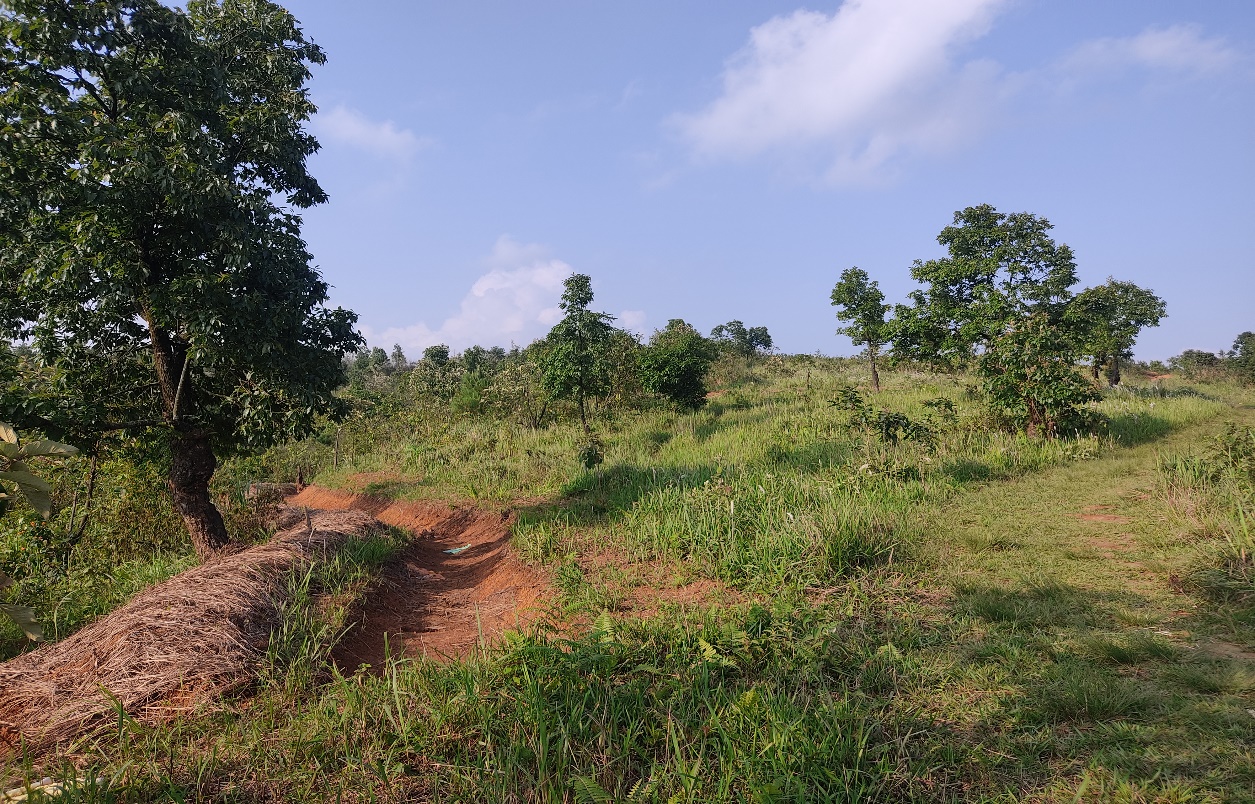
| Type of intervention | Name of Site | GPS Coordinates | Amount Sanctioned | Work Status | |
|---|---|---|---|---|---|
| Community Nursery | Chur-Chur | 25. 40764° N | 92. 45568° E | ₹ 89700 | Completed |
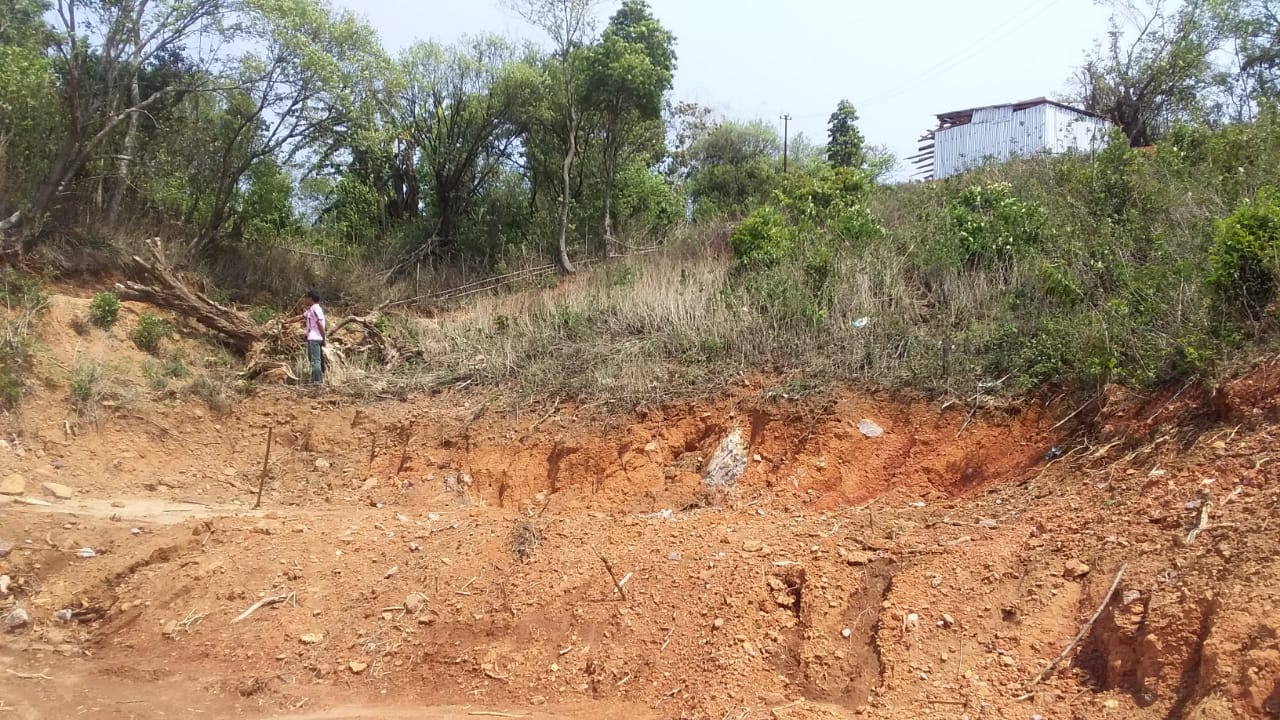
before
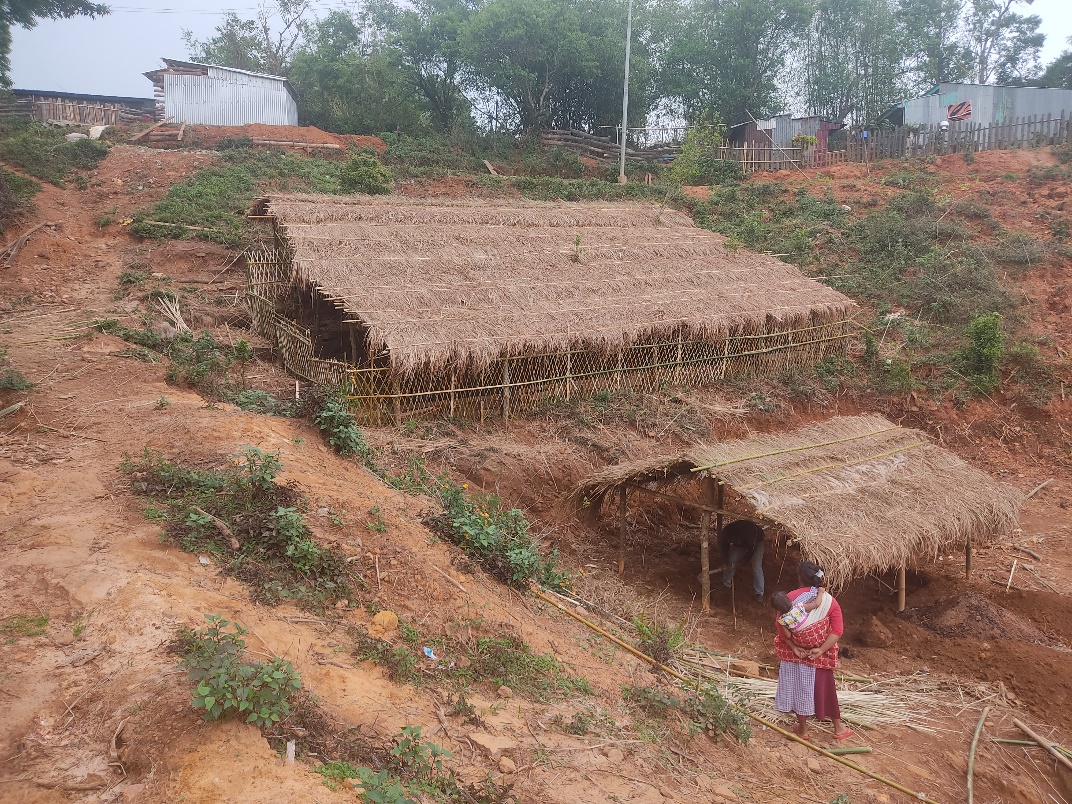
After
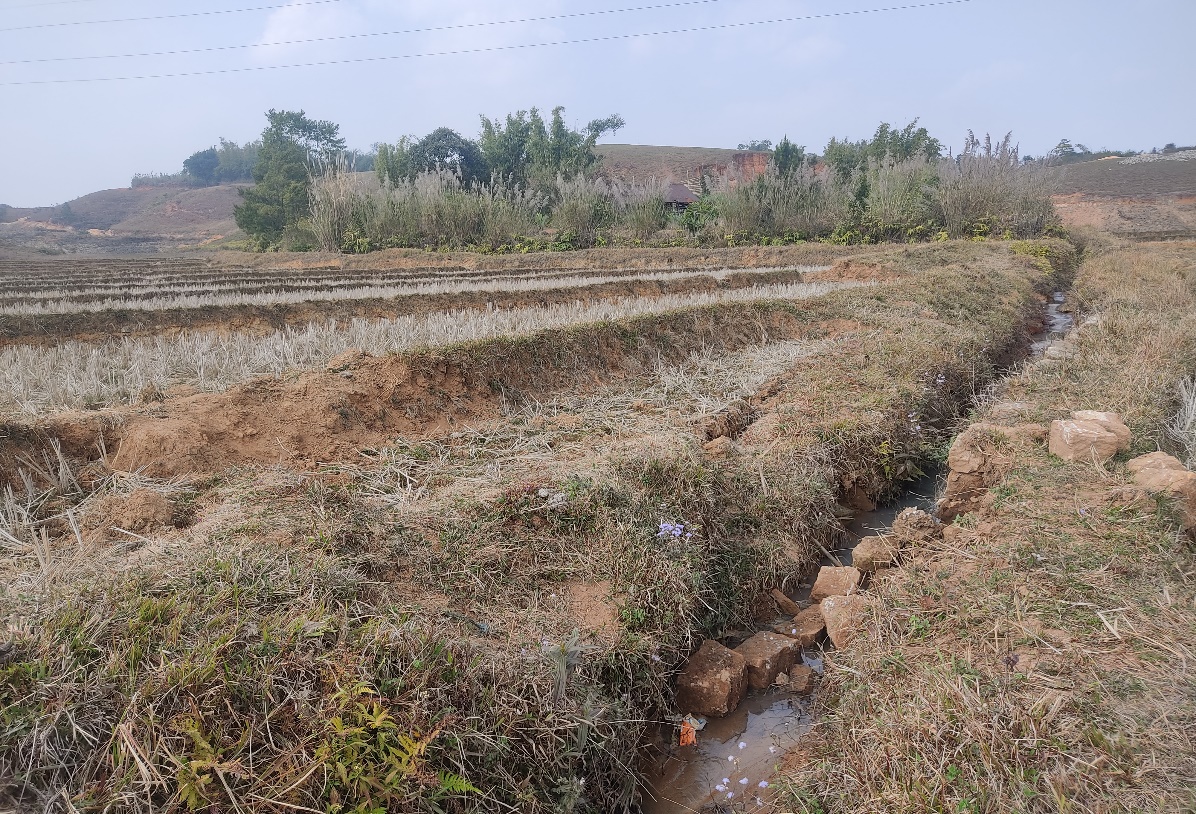
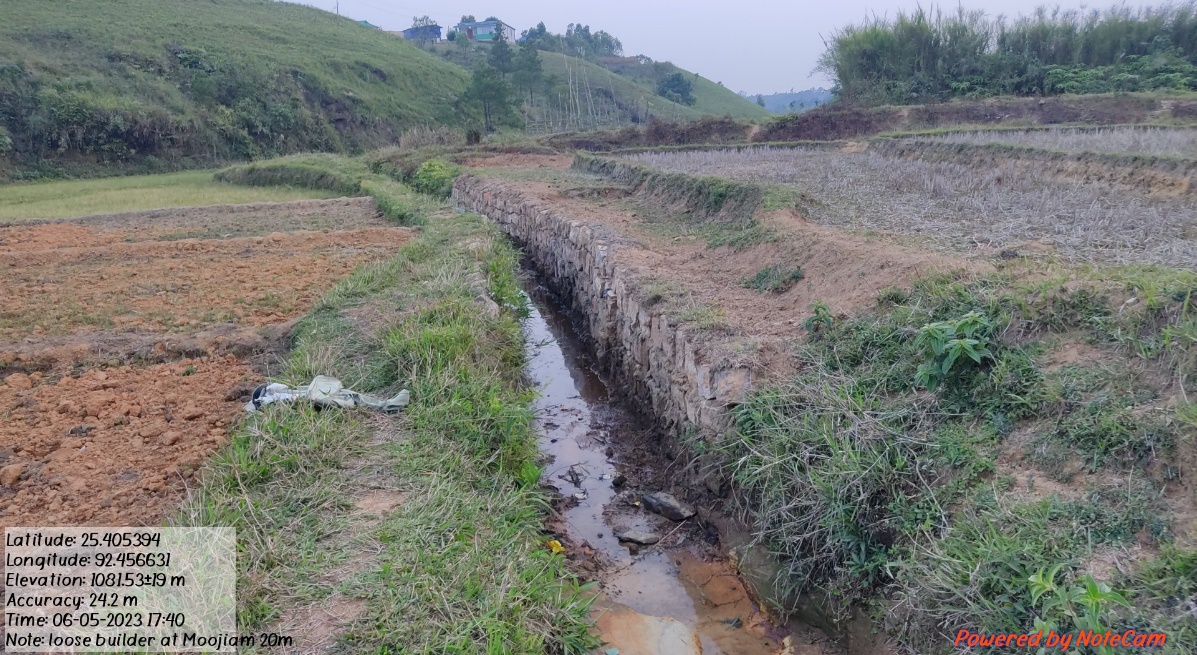
| Type of intervention | Name of Site | GPS Coordinates | Amount Sanctioned | Work Status | |
|---|---|---|---|---|---|
| Loose boulder | Moojiam | 25. 405394° N | 92. 456631° E | ₹ 77500 | Completed |
FUND STATUS
| Name of Village | Fund Released to VNRMC | Total no. of Work Orders Issued |
Total amount Issued under CLLMP (Per Activity) |
Total Amount Spent |
|---|---|---|---|---|
| Jarain (Sutnga) | ₹ 501930.00 | 2 | Conmmunity Nursery with Bio-fencing ₹ 179,560.00 |
₹ 253,840.00 |
Contour Trenches ₹ 74,280.00 |